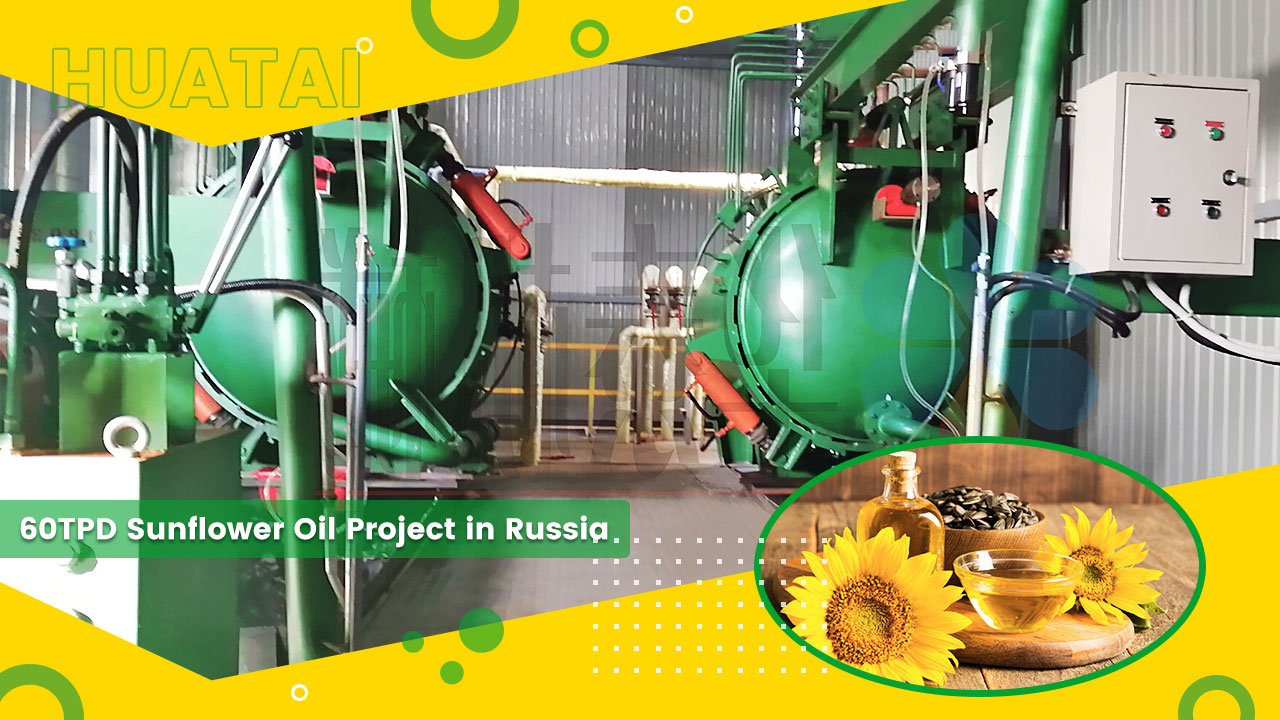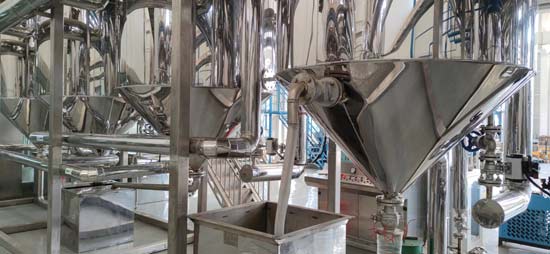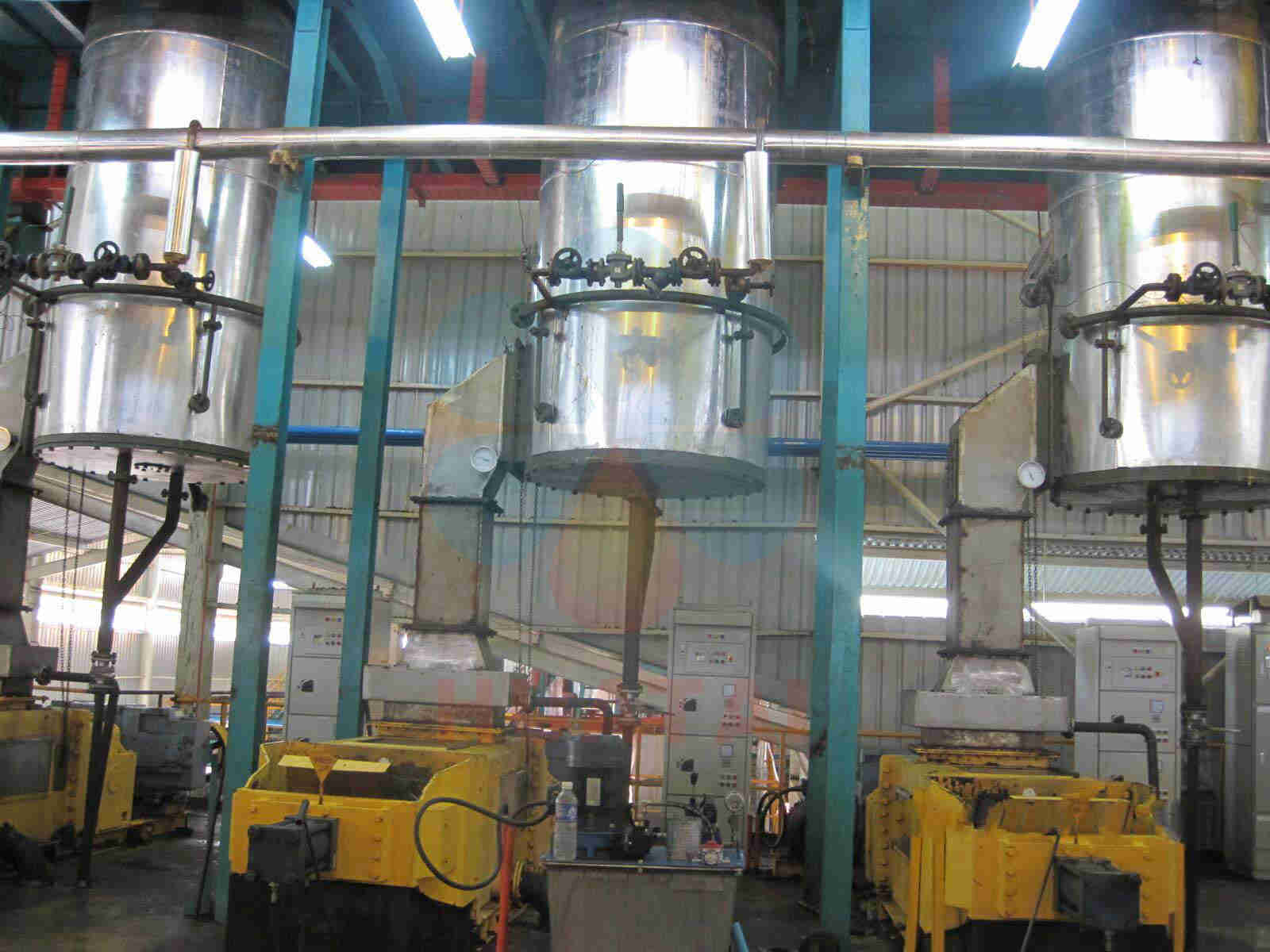The principle of low temperature anhydrous degumming process is particle coagulation, that is, when the critical temperature of colloidal impurities coagulation is higher than the oil temperature in which they are located, the colloidal impurities precipitate from the oil and the peptized state becomes a suspended state. The process flow of low temperature anhydrous degumming is: machine-pressed crude peanut oil-oil tank-cooling tank-filter-clear oil.
Clarification: Crude peanut oil refined oil tank preliminary impurities removal, solid impurities as filter aids, or add activated carbon and peanut cake powder for filtration, the addition amount is 3-5 times the colloid content, 0.1% of the oil mass.
Cooling: After the oil tank, the oil temperature is 24~30℃, and it drops to room temperature, and the workshop temperature is maintained at 15~25℃.
Filtration: Use a plate and frame filter to filter, the initial oil intake is small, which is conducive to the formation of a filter cake layer. After sampling and testing the filtered oil, increase the oil intake and maintain constant temperature filtration, that is, keep the colloidal particles stable. The turbid oil that is initially filtered is returned and then filtered together.
Secondary cooling: Use chilled water to cool to 10-15℃. If it is lower than 10℃, the filtration will be very slow. Let it stand for 48 hours.
Secondary filtration: Perform secondary filtration on the oil after standing to remove excess impurities.

The following points should be noted during the low-temperature anhydrous degumming process:
1. The colloid formed by low-temperature degumming is small and easy to be deformed by pressure. It belongs to compressible filter residue. In order to ensure the filtration and separation effect, additives need to be added. Add cake powder to the oil as a coagulant and filter aid, but the amount of addition should be appropriate. Excessive amount will increase the filtration load;
2. The viscosity of oil is high at low temperature, phospholipids and other lipids attract each other to condense, the resistance increases, and the condensation speed is slow. Slow cooling is required to form coarse and homogeneous colloid particles; slow stirring during cooling can increase the probability of mutual collision and contact between colloid particles. Increase the coagulation speed, avoid uneven coagulation, and form uniform particles;
3. Pay attention to the filtration pressure. If the filtration pressure is high before the bottom filter cake layer is formed, it is easy to pass through the filter layer and cause the filtered oil to be turbid. After the filtered oil is tested and qualified, the turbid oil is returned and re-filtered.
The anhydrous degumming process is often used in the production of strong-flavor peanut oil. Unlike the conventional peanut oil refining and degumming process, the anhydrous degumming process can remove the soluble impurities while retaining the nutrition and flavor of the oil, which is suitable for the processing of strong-flavor edible oil.
Henan Huatai Cereals and Oils Machinery Co., Ltd. provides customers with a complete set of strong-flavor peanut oil production lines for the production of strong-flavor edible oil. The finished peanut oil has a strong aroma and good nutrition retention. It can pass the QS certification and enter the supermarket for sale. Huatai Oil Machinery manufacturers have rich project experience in the production line of strong-flavor peanut oil, good customer feedback, and the finished oil has a strong flavor and good quality. Customers who want to know more can visit the site, and are also welcome to visit the factory for inspection.
Website: https://www.oilpresscn.com/
Email: info06@cnoilmachine.com



